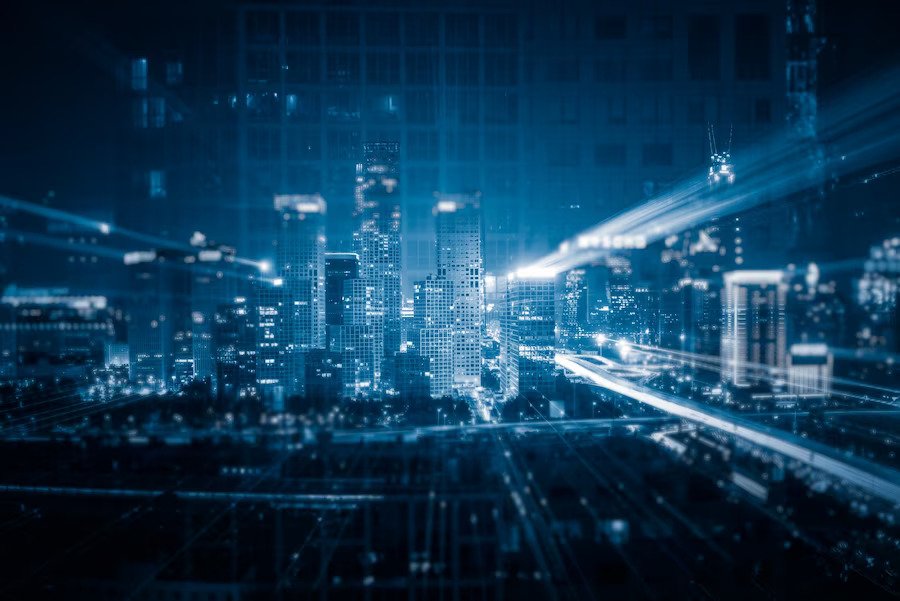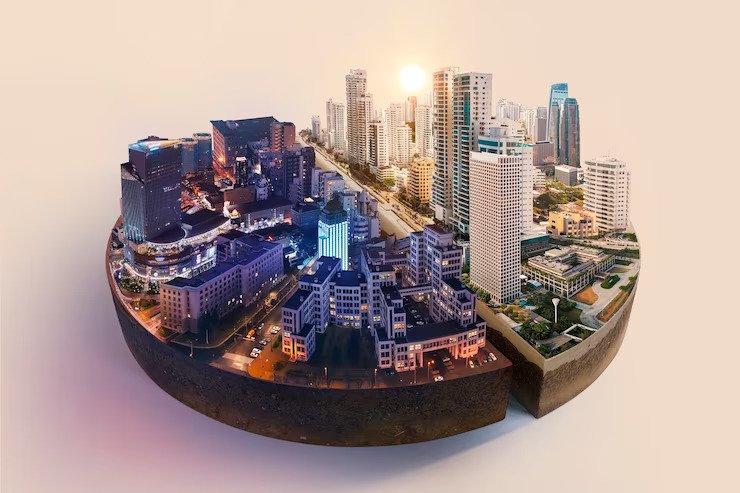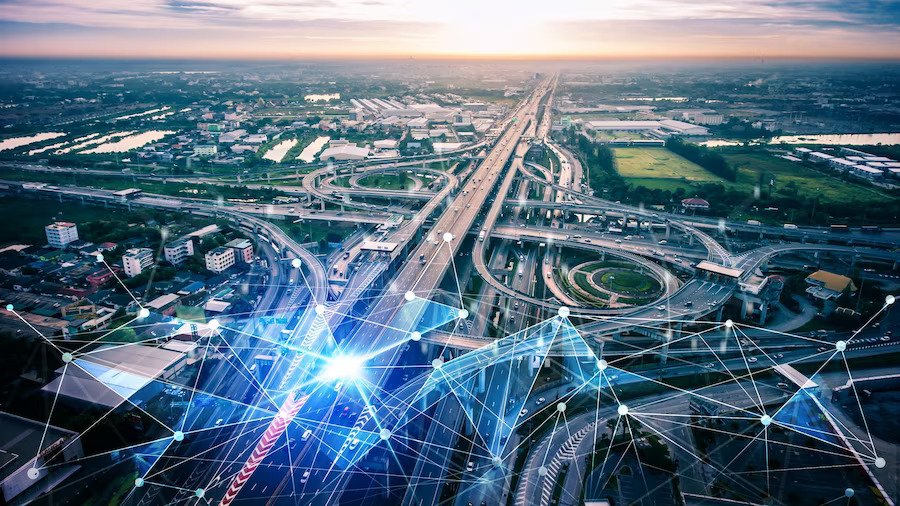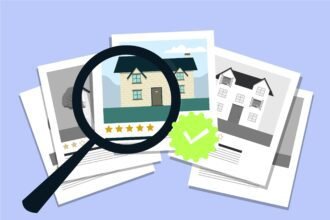Smart City Using IoT: Creating Better Life with Data & Technologies
- 1 How IoT Facilitates Smart City Building
- 1.1 IoT Creates Comfortable Environment for Cities
- 1.2 IoT Improves Environmental Safety for Cities
- 1.3 IoT Makes Municipal Management More Efficient
- 1.4 IoT Makes it Convenient for City Operation
- 1.5 IoT Reduces City Energy Consumption
- 2 What Technologies Enable the IoT-based Smart City?
Technologies and data are the foundation of smart cities. By empowering decision-makers and stakeholders to cut costs, optimize service delivery, and enhance service operations by obtaining data from various sources, smart cities improve the lives of city people. The enablement of data acquisition, optimization, analysis, and processing in real time is making IoT a worthwhile force for smart cities.
How IoT Facilitates Smart City Building

Smart city management maybe approached in a variety of ways. Typically, these solutions are usually implemented starting small. For instance, several sensors are positioned on the streets to collect information on anything from available parking spaces to the local water consumption. The captured data will be transmitted through LoRaWAN gateways and may also be extensively employed in a variety of sectors, such as preventing criminal activity, enhancing urban traffic flow, etc. The intelligent solutions that emerge as a result of linking people, data, objects together, analyzing, and optimizing, to dramatically improve people’s quality of life.
IoT Creates Comfortable Environment for Cities
| Departments | Monitoring indicators |
| Meteorological Dept. | temperature, humidity, atmospheric pressure, wind speed, wind direction |
| Air quality (PM2.5, PM10, NO2, SO2, CO, O3) | |
| Environmental Protection Dept. | niose, VOCs, vibration, atmospheric dust |
| pollution sources monitoring , pollution sources tracking | |
| Sanitation Dept. | waste remote monitoring, waste classification, garbage cleaning supervision, object stacking monitoring, etc. |
| Landscaping Dept. | rainwater utilization for sponge city, water-saving irrigation, soil enhancement, and biological drought resistance, etc. |
IoT Improves Environmental Safety for Cities
| Departments | Monitoring indicators |
| Public Safety Dept. | emergency event monitoring, important asset positioning, theft prevention |
| Fire Dept. | Inflammable and explosive point location search and monitoring, smoke alarms, remote fire extinguishing, theft prevention for fire hydrants, monitoring backup locations for firefighting supplies, monitoring locations for sources of firefighting water, etc. |
| Water Conservancy Dept. | water quality and water source monitoring, water level and rainfall monitoring, early warning and treatment of flood, mountain torrent, drought, soil and water conservation monitoring, water accumulation monitoring, waterlogging location monitoring, rain and sewage pipe network monitoring, manhole cover monitoring, etc. |
| Building Safety Dept. | Monitoring of building settlement, building tilt, and building cracks |
| Food Administration Dept. | Monitoring of expired destruction, food contamination, and tracing of food sources |
IoT Makes Municipal Management More Efficient
| Departments | Monitoring indicators |
| Government Affairs Dept. | integrating of service platforms for the public, optimization of internal management, and different departments linkage and data analysis |
| Manufacturing District Management | production status monitoring, energy efficiency management, asset tracking, infrastructure monitoring, industrial environment monitoring, etc. |
| Agriculture Dept. | Intelligent irrigation, traceability of agricultural products, Intelligent breeding, forestry environmental monitoring, animal monitoring. etc. |
IoT Makes it Convenient for City Operation
| Departments | Monitoring indicators |
| Transportation Dept. | congestion relief, road condition warning, route planning, road maintenance, road capacity control, traffic management, etc. |
| car parking guidance, vehicle searching, empty parking spot founding, license plate recognition and access control | |
| Ministry of Healthcare | connect patients, medical personnel, organizations, and equipment together for smart management, establish electronic files for patients for online diagnosis and treatment, remote health monitoring, etc. |
| Ministry of Aging Care | Remote health monitoring, fall alarm, emergency assistance |
IoT Reduces City Energy Consumption
| Departments | Monitoring indicators |
| Energy Dept. | water, electricity, and heating monitoring, equipment energy consumption monitoring, smart lighting control, clean energy utilization, elevator monitoring, etc. |
What Technologies Enable the IoT-based Smart City?

The intricate sensor networks that collect all sorts of data from citizens, infrastructure, and just about everything else will be their main facilitators of building smart cities. Besides improved sensor technology, smart cities will need to rely on more technologies. Together, these data-driven solutions improve resource use, bring ease to the public, and give governments more visibility and control. The many technologies that make up the infrastructure of smart cities’ core include the ones listed below:
Sensor-to-cloud Technology
Smart cities, as well as smart governance, rely on the collection, analysis, and processing of large amounts of accurate and real-time data, which requires the use of IoT gateways to transmit critical information to the control hubs and relay response commands back to appropriate endpoints.
IoT sensors and cameras can continuously collect data of various formats in real time, such as passenger flow at stations, road traffic, pollution levels of water sources, and energy consumption in residential areas, and upload them to the government’s cloud platforms through LPWAN gateways. Governmental organizations may quickly decide how to distribute various resources and assets by using this data.
For instance, transportation organizations can modify train routes to suit various needs depending on passenger flow and ticketing data at railway stations. The same goes for monitoring the degree of pollution in water bodies and alerting those in charge of taking corrective action. IoT gateways are also be programmed with setting rules that can automatically start emergency response actions, such cutting off the supply of polluted water to homes.
Big-data Analysis
Big data analytics will be employed in many industries, especially crucial ones like education, healthcare, and transportation, thanks to the Internet of Things’ ability to gather data from a wide variety of new sources. Big data analysis has already becoming a crucial component of the Internet of Things.
Big data enables governments to discover potential urban trends. For instance, big data analytics can assist the education sector in spotting tendencies like under-enrolment and so preventing them. Big data can also be used to find out the causes of such problems and plan remedial actions. As a result, big data will an important auxiliary tool for smart city government decision-making.
Artificial Intelligence
AI builds on the capabilities of IoT and Big Data. By automating decision-making, AI can help big data and IoT activities in smart cities. In fact, artificial intelligence plays a major role in how responsive the Internet of Things is. Its most apparent use case involves automating data-intensive processes, such offering fundamental citizen services via chatbots.
Additionally, cutting-edge technologies like deep learning and computer vision can help smart cities realize the full potential of artificial intelligence. To detect drivers who are parked illegally, for instance, traffic authorities can analyze traffic photos using computer vision. In order to aid law enforcement in apprehending offenders, computer vision may also be utilized to locate and identify automobiles linked to crimes.
Final Words
The use of Internet of Things technology in smart cities is more about achieving important objectives than it is a trend in utilitarianism. It encompasses matters like extending the lifespan of infrastructure and managing it better while also enhancing resident safety. Meanwhile, it’s more about reducing costs and energy usage to be more environmentally friendly. And this is only possible through an integrated, intelligent and interconnected network of multiple core technologies.

















